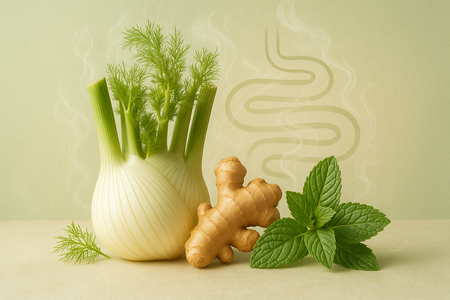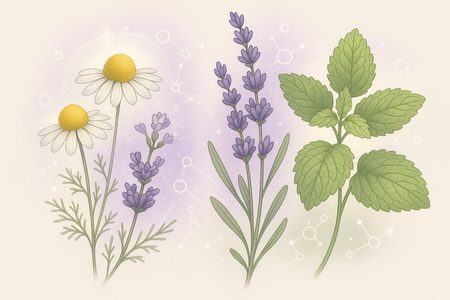You’ve probably seen mushroom supplements everywhere—Reishi, Lion’s Mane, Chaga, Cordyceps.
But here’s the real question:
Should you take them as powders or capsules?
Both forms deliver similar benefits, but the experience and results can vary a lot depending on your habits, goals, and preferences.
Let’s break it down simply.
What’s the Difference?
Mushroom powder is usually a finely ground extract you mix into drinks or food.
Capsules are pre-measured doses in pill form, often made with the same powder, just encapsulated.
Seems like a small difference. But it changes how, when, and even how well you take them.
Why People Choose Mushroom Powder
You control the dose.
You feel the taste.
You engage more with the ritual.
Mushroom powder works well if:
-
You like to blend it into tea, coffee, or smoothies
-
You want flexible dosing
-
You care about absorption
For example, adding Reishi Spore Powder to your evening tea can be calming and grounding. The flavor signals your body that it’s time to wind down.
It also gives you room to adjust the amount. Want a microdose? Start small. Want a full power session? Scoop up.
Why Some Prefer Capsules
Capsules are quick.
No mess. No taste. No prep.
Perfect if you’re busy or sensitive to strong herbal flavors.
Capsules work well if:
-
You want consistent, pre-measured doses
-
You need something portable
-
You prefer not to taste herbs
If you’re on a schedule and need brain support, taking Brain & Memory Tonic in capsule form can feel more practical than measuring out powders daily.
How Absorption Compares
Powder may have the upper hand here.
When you mix powder with warm water or drink it with healthy fats, your body may absorb it faster. Some people report feeling effects within 20 minutes—especially with potent mushrooms like Chaga Extract 10:1 or 5-Mushroom Blend.
Capsules usually take longer to digest, depending on your stomach and the capsule material. This delay might matter if you’re using mushrooms for immediate focus, energy, or relaxation.
Flavor: Friend or Foe?
Taste is personal. Some people love the earthy flavor of mushrooms. Others find it hard to get down.
Here’s the truth:
-
Powders give you the full taste experience
-
Capsules let you skip it
But taste is part of the healing process for many traditions. If you're working with ceremonial herbs like Blue Lotus Tea or Shakti Chai w/ PowerBoost, flavor connects you to the moment, the plant, the purpose.
Dose Flexibility
If you want total control, go with powder.
Capsules lock you into what the manufacturer decides is the standard dose—often 500mg to 1000mg. Fine for most, but if you’re experimenting or responding to daily stress levels, powder offers more flexibility.
Say you’re winding down after a long day. You can blend a stronger amount of TranquiliTea with mushroom powder into your drink. Adjust it tomorrow if you need less.
Portability & Convenience
Capsules win here.
They’re:
-
Easy to pack
-
Easy to store
-
Easy to take anywhere
If you’re traveling or taking supplements to work, capsules like Mucuna or Deer Antler Velvet make more sense than scooping powder into a shaker.
Price and Value
You’ll often get more servings for your money with powders.
Why?
You’re not paying for capsule material, encapsulation, or packaging. One bag of Chaga Extract or Reishi Spore Powder can last a month or more, even at higher doses.
Capsules, while convenient, are usually priced higher per serving.
Mixing with Other Herbs
If you like blending herbs into a full wellness drink, powders give you way more room to experiment.
Try adding mushroom powder to:
-
VitalitTea for daily energy
-
TummiTea for gut health
-
SexualiTea for intimate vitality
Capsules can’t match the synergy you get from making your own herbal blends.
The Ritual Effect
Some people take mushrooms for physical results. Others want the ritual—slowing down, making tea, feeling the warmth, breathing deeper.
If ritual is part of your wellness life, powder fits better.
Capsules are functional. Powders are experiential.
And in some cases, the ritual itself is what transforms the mind and body. Think of a morning latte made with Matcha Celestial and Lion’s Mane for focus. You’re not just taking a supplement. You’re setting a tone.
How to Choose Based on Your Life
Still unsure? Ask yourself:
-
Do I have time to make a drink daily?
-
Am I okay with strong or earthy tastes?
-
Do I want to feel the herbs working more immediately?
-
Do I often travel or need something quick?
-
Am I blending mushrooms with other herbs?
If you answered yes to the first three, go with powder.
If you said yes to the last two, capsules may suit you better.
There’s no wrong answer. Only the one that fits your body, your habits, and your lifestyle.
A Hybrid Option
Want both? Keep capsules for travel or backup.
Use powder for daily rituals or deeper work.
For example, take 5-Mushroom Blend powder every morning with tea. Keep Brain & Memory Tonic capsules in your bag for a midday boost at work.
This approach gives you flexibility, without choosing one over the other.
Bottom Line
The debate of mushroom powder vs capsules isn’t about which is better.
It’s about which one fits how you live.
Do you want a fast supplement or a grounding ritual?
Do you need something on the go, or something to build your wellness routine around?
Either way, the power of mushrooms is available to you.
And whichever form you choose, just make sure you’re getting high-quality, well-sourced extracts that respect the plant and your body.





